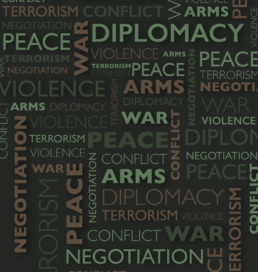
Dr. Shimels is a human rights lawyer by profession with a hybrid experience working both in the academia as lecturer and researcher, and through his practical engagement in the field of human rights advocacy. He holds a Doctoral Degree (Dr.
iur.) in International Human Rights Law, Terrorism and Counterterrorism from the European University of Viadrina, in Frankfurt (Oder), Germany. He received his masters degree on human rights law from Addis Ababa University and LLB Degree in law from Haramaya University.
Currently, Dr. Shimels serves as the Ethiopia Country Director for the International human rights NGO called Freedom House. He is also working for European Center for Electoral Support (ECES) as Electoral Trainings Coordinator and the Legal Expert on Civic and Voter Education and Inclusion. He also holds a visiting professorship position and teaches the African Human Rights Regional System at the Faculty of Law, European University of Viadrina, Germany.
The Federal Democratic Republic of Ethiopian Constitution unequivocally underpins under Art. 9 (4) that ‘[a]ll international agreements ratified by Ethiopia are an integral part of the law of the land. This constitutional hospitability of international instruments into the domestic legal realm is an instant assenter of any methodological approach that aims to assess the validity of the State’s legislative
and institutional setups, which are proclaimed
in view of implementing its international
obligations emanating from these instruments.
Furthermore, as clearly stipulated under Arts 26, 27, and 47 of the Vienna Convention on the Law of Treaties, these domestic laws are required to be framed in good faith complementing the State’s international binding obligations as no State can invoke its domestic law as an excuse for its non-compliance.
It seems in view of this propensity that both of the current national terrorism-related legislation the Ethiopian Anti-Terrorism Proclamation3 and the Proclamation on the Prevention and Suppression of Money Laundering and Financing of Terrorism – reaffirmed in their respective preambles, of Ethiopia’s duty of effectively complementing its international obligations in the prevention and combating of terrorism as one of the reasons necessitating the enactment of these laws. The preamble of the Anti-Terroris Proclamation, while specifically rebranding terrorism as a serious threat to the world peace and security,4 reverberated,
[WHEREAS], in order to adequately fight terrorism, it is necessary to cooperate with governments and peoples of our region, continent and other parts of the world that have anti-terrorism objectives and particularly, to enforce agreements that have been entered into under the United Nations and the African Union
In a similar vein, the Money Laundering and Financing of Terrorism Proclamation echoed the alike mission stating that this law is necessary given the fact that ‘the effort to combat money laundering and the financing of terrorism is being undertaken internationally and Ethiopia is part thereof’.5 What ought to be at stake behind the enactment of these legislation is, therefore, titivating the domestic legal and institutional framework and enhancing the State’s capacity of effectively enforcing those international obligations in a manner compatible with the scope, intent, purposes, and the objectives derived therefrom.
Accordingly, it becomes apparent to question whether the aforementioned domestic laws serve the goals they are meant for. For this quarry to have a meaningful insight, it appears natural to recapture the main international terrorism-related legal backups to which Ethiopia has ratified and agreed to comply with.
Accordingly, it becomes apparent to question whether the aforementioned domestic laws serve the goals they are meant for. For this quarry to have a meaningful insight, it appears natural to recapture the main international terrorism-related legal backups to which Ethiopia has ratified and agreed to comply with. This is mainly because the core definitional legal standard is inherently construed from the relevant extant international conventions – the application of which is destined only to States
Party to the instruments – and the binding Security Council Resolutions, and most notably, Resolution No. 1566.6 As the Council’s binding Resolutions have universal application for all Member States to the UN, Ethiopia would not be an exception to this rule and its international obligations arising from these resolutions have to be properly implemented within its domestic jurisdiction.7
On the other hand, the same cannot be said when it comes to treaties relating to terrorism unless they are ratified by the State in concern, as no treaty creates either obligations or rights without a State consent unless and otherwise, it contains a customary norm of international law recognized as such.8 At least at their current status, none of the conventions relating to terrorism are yet to reach that level. Hence, it becomes a must to identify the number of relevant terrorism-related international instruments to which Ethiopia is a party either through accession or ratification if their status as integral parts of the law of the land is supposed to have a constitutional recognition. Thus, so far Ethiopia has acceded to or ratified nine of the most influential international conventions on terrorismAccordingly, Conventions relating to the safety of the aviation and maritime industry namely, the 1963 Convention on Offences and Certain Other Acts Committed On Board Aircraft,9 the 1970 Convention for the Suppression of Unlawful Seizure of Aircraft,10 the 1971 Convention for the Suppression of Unlawful Acts against the Safety of Civil Aviation,11 the 1988 Protocol for the Suppression of Unlawful Acts of Violence at Airports Serving International Civil Aviation,12and the 1988 Convention for the Suppression of Unlawful Acts against the Safety of Maritime Navigation13are all ratified by Ethiopia. Likewise, the State has also ratified or acceded to the conventions aimed at offering special protections to particular groups, that is, the 1973 Convention on the Prevention and Punishment of Crimes against Internationally Protected Persons, including Diplomatic Agents,14 the 1979 International Convention against the Taking of Hostages,15 as well as, the 1997 International Convention for the Suppression of Terrorist Bombings.16 On the other hand, the 1999 International Convention for the Suppression of the Financing of Terrorism, which is basically devoted to minimizing the means and capacities of terrorist perpetrators is also engrained as an integral part of the law of the land through ratification.17 From the African regional context, Ethiopia has also ratified the OAU Convention on the Prevention and Combating of terrorism,18 and Protocol to the Convention.19
1566(2004): a resolution that served as a backbone in the formulation of the definitional guide, which also included the international conventions as part of its definitional elements of the crime of terrorism. Third, on the other hand, Ethiopia is a party to the key conventions, from which the proposed definition is highly substantiated and informed from – principally, the Convention on the Suppression of Financing of Terrorism and the Hostage Takings Convention.

Accordingly, it can be asserted that Ethiopia’s obligation in the prevention and combating of terrorism is stemmed both from the conventions and the relevant Security Council resolutions, which imposed not only the obligation of preventing and combating of terrorism but also the mechanisms and standards on how to implement them. From these perspectives, there should not be a doubt that invoking the proposed definition as an international legal standard in ascertaining the legal elements of the crime of terrorism as treated in the national legislation is an irreplaceable approach if one has to critically examine the actual tenets of the Ethiopian Anti- Terrorism laws.
The Pre-2009 National Legislative Frameworks Addressing Terrorism
Before the issuance of the two substantial antiterrorism proclamations in the year 2009, there was no specific proscribing an act of terrorism as a separate and discrete criminal conduct – despite the Nation’s acquaintance with the term, amidst the late-1970s deadly scenes of state-sponsored terror and counter violence masterminded in every corner of the nation.20 This doesn’t entail, however, that the issue had been totally overlooked. At least, some particular provisions of the general criminal codes and pertinent proclamations had been in place circumscribing the act within the ambit of associated criminal conducts explicitly proscribed by these laws. In its earlier reports to the United Nations Security Council Counter- Terrorism Committee (CTC or 1373/2001 Committee), Ethiopia had been submitting that terrorism is addressed in the national penal codes by way of criminalizing acts committed to serving terrorist objectives.21
Of significant importance in this regard are the 1957 Penal Code, the 1981 Revised Special Penal Code, the 2004 Revised Criminal Code, and
other financial administration and possession of weaponry regulatory proclamations of the State.
It has to be noted from the outset that in neither of these statutes was the term ‘terrorism’ or ‘terrorist act’ defined. Nor did the laws spotlight the core elements of the crime. The relevance of these norms goes, therefore, only to the extent of preventing or prosecuting some conducts the perpetration of which might have some terrorist element – either as a means or as a method – and one could notice such a link only by analogy through implied assessment of the potential value of the provisions lensing from the context of the prevention and punishment of terrorist crimes. Having this gap in mind, the specific provisions of the laws just enumerated are tinted as follows, only to the extent of the value they have had as normative frameworks in regulating the issue at hand during the pre- 2009 periods.
The 1957 Penal Code of Ethiopia
Since its inception in 1957 and up until its formal repeal in 2004,22 the Penal Code of the Empire of Ethiopia had been the longest-serving domestic in the administration of the criminal justice system of the nation, amid minor amendments to some of its sections.23 Generally, the relevant provisions contained in the Code to the topic at hand can be categorized into three themes.
Some of the provisions are very general in application – dictating the principles on criminal liability and legality, jurisdiction and issues of extradition, degrees and forms of participation in crimes, and the extent and type of criminal liabilities – in all criminal litigations, and hence to any alleged crime of terrorism as well.
The second pertinent categories of the provisions are those stipulated in the special part of the Code dealing with particular offences that could either roughly be perceived as manifestations to have some shared characters with the crime of terrorism – mostly when it is used as a method in pursuing the goals of the stated crimes, or crimes within which an act of terrorism could be regarded as a subunit, or they proscribe conducts that are ejected as offences under the apposite international law, which Ethiopia is obliged to implement in its jurisdiction. Such category of offences include, inter alia, outrages against the constitution and constitutional authorities, armed rising and civil war, attacks on the political and territorial integrity of the state, the violation of the political or territorial sovereignty of the state, hostile acts and outrages against a foreign state and foreign heads of state, and violation of a foreign sovereignty. Although none of these offences would qualify as terrorist acts per se, their value in tracing and countering the ramifications of terrorist acts committed as a method in the course of achieving the goals of these proscribed conducts cannot be completely overlooked.